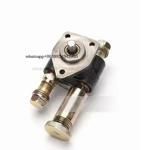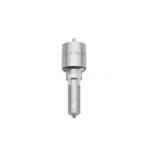Information injection-pump assembly
BOSCH
9 400 612 607
9400612607
ZEXEL
101405-9340
1014059340
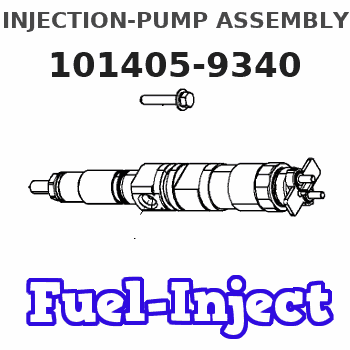
Rating:
Service parts 101405-9340 INJECTION-PUMP ASSEMBLY:
1.
_
5.
AUTOM. ADVANCE MECHANIS
6.
COUPLING PLATE
8.
_
9.
_
11.
Nozzle and Holder
12.
Open Pre:MPa(Kqf/cm2)
21.6{220}
15.
NOZZLE SET
Cross reference number
BOSCH
9 400 612 607
9400612607
ZEXEL
101405-9340
1014059340
Zexel num
Bosch num
Firm num
Name
Calibration Data:
Adjustment conditions
Test oil
1404 Test oil ISO4113 or {SAEJ967d}
1404 Test oil ISO4113 or {SAEJ967d}
Test oil temperature
degC
40
40
45
Nozzle and nozzle holder
105780-8140
Bosch type code
EF8511/9A
Nozzle
105780-0000
Bosch type code
DN12SD12T
Nozzle holder
105780-2080
Bosch type code
EF8511/9
Opening pressure
MPa
17.2
Opening pressure
kgf/cm2
175
Injection pipe
Outer diameter - inner diameter - length (mm) mm 6-2-600
Outer diameter - inner diameter - length (mm) mm 6-2-600
Overflow valve
131424-5720
Overflow valve opening pressure
kPa
255
221
289
Overflow valve opening pressure
kgf/cm2
2.6
2.25
2.95
Tester oil delivery pressure
kPa
255
255
255
Tester oil delivery pressure
kgf/cm2
2.6
2.6
2.6
Direction of rotation (viewed from drive side)
Right R
Right R
Injection timing adjustment
Direction of rotation (viewed from drive side)
Right R
Right R
Injection order
1-3-4-2
Pre-stroke
mm
3.5
3.45
3.55
Rack position
After adjusting injection quantity. R=A
After adjusting injection quantity. R=A
Beginning of injection position
Drive side NO.1
Drive side NO.1
Difference between angles 1
Cal 1-3 deg. 90 89.5 90.5
Cal 1-3 deg. 90 89.5 90.5
Difference between angles 2
Cal 1-4 deg. 180 179.5 180.5
Cal 1-4 deg. 180 179.5 180.5
Difference between angles 3
Cyl.1-2 deg. 270 269.5 270.5
Cyl.1-2 deg. 270 269.5 270.5
Injection quantity adjustment
Adjusting point
A
Rack position
9.1
Pump speed
r/min
975
975
975
Average injection quantity
mm3/st.
93.5
92.5
94.5
Max. variation between cylinders
%
0
-2.5
2.5
Basic
*
Fixing the lever
*
Injection quantity adjustment_02
Adjusting point
C
Rack position
6.8+-0.5
Pump speed
r/min
400
400
400
Average injection quantity
mm3/st.
12
10.7
13.3
Max. variation between cylinders
%
0
-10
10
Fixing the rack
*
Injection quantity adjustment_03
Adjusting point
D
Rack position
9.3++
Pump speed
r/min
100
100
100
Average injection quantity
mm3/st.
80
80
85
Fixing the lever
*
Rack limit
*
Test data Ex:
Governor adjustment
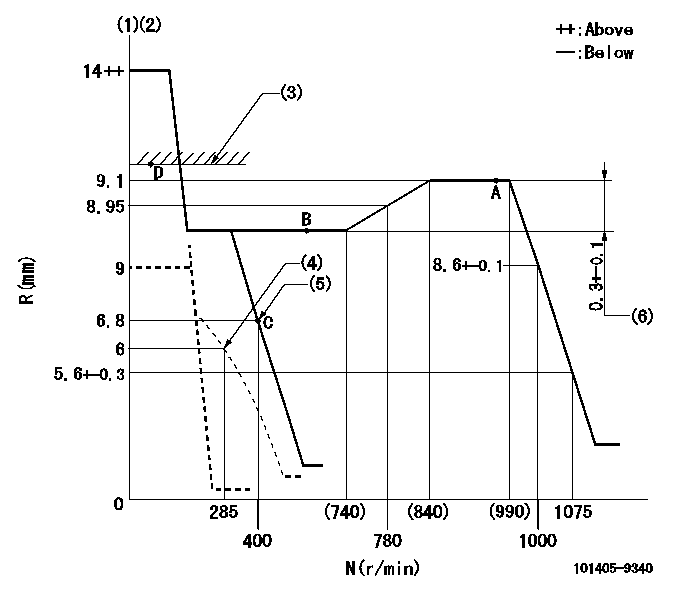
N:Pump speed
R:Rack position (mm)
(1)Target notch: K
(2)Tolerance for racks not indicated: +-0.05mm.
(3)RACK LIMIT
(4)Main spring setting
(5)Set idle sub-spring
(6)Rack difference between N = N1 and N = N2
----------
K=10 N1=975r/min N2=700r/min
----------
----------
K=10 N1=975r/min N2=700r/min
----------
Speed control lever angle
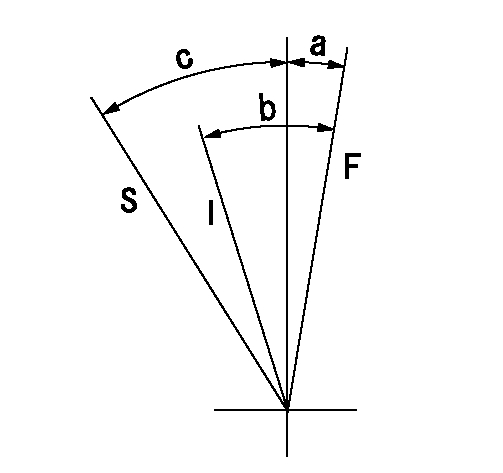
F:Full speed
I:Idle
S:Stop
----------
----------
a=2deg+-5deg b=17deg+-5deg c=31deg+-3deg
----------
----------
a=2deg+-5deg b=17deg+-5deg c=31deg+-3deg
Stop lever angle
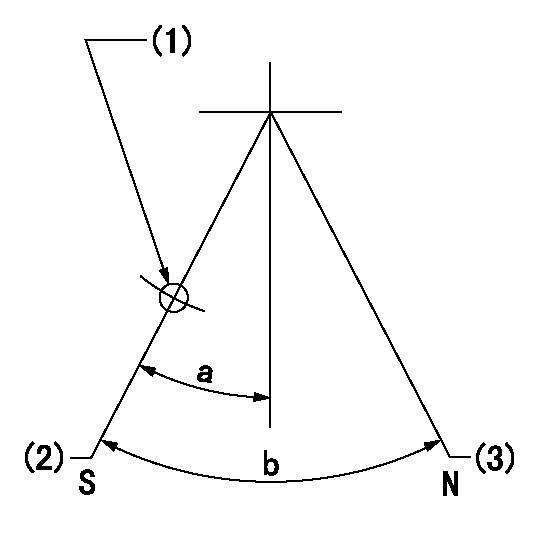
N:Pump normal
S:Stop the pump.
(1)Use the hole at R = aa
(2)Speed = bb, rack position = cc (sealed at delivery)
(3)Normal
----------
aa=25mm bb=0r/min cc=1-0.5mm
----------
a=21deg+-5deg b=(55deg)
----------
aa=25mm bb=0r/min cc=1-0.5mm
----------
a=21deg+-5deg b=(55deg)
0000001501 I/P WITH LOAD PLUNGER ADJ
Load plunger-equipped pump adjustment
1. Adjust the variation between cylinders and the injection quantity.
2. At Full point A, adjust the pre-stroke to the specified value.
3. After pre-stroke adjustment, reconfirm that the fuel injection quantity and the variation between cylinders is as specified.
----------
----------
----------
----------
Timing setting

(1)Pump vertical direction
(2)Position of gear mark '3' at No 1 cylinder's beginning of injection
(3)B.T.D.C.: aa
(4)-
----------
aa=6deg
----------
a=(110deg)
----------
aa=6deg
----------
a=(110deg)
Information:
Crankcase Breather
Clean
1. Loosen breather retaining clamp (1) on breather.2. Loosen hose clamp (2) and remove breather assembly.3. Wash breather in clean, nonflammable solvent and allow to dry.4. Install new seal.5. Assemble breather and install in reverse order of removal.6. Tighten all hose clamps (2) to 27 4.5 lb in (3.0 0.5 N m) If the crankcase breather is not maintained on a regular basis, it will become plugged. A plugged crankcase breather would result in excessive crankcase pressure that may cause crankshaft seal leakage.Refer to the Torque Specifications section of this manual for Torque for Standard Hose Clamps-Worm Drive Band Type hose clamps if your engine is equipped.Alternator, Fan and Accessory Drive Belts
Inspect
Inspect the drive belts for wear and replace if they show any signs of wear.If one belt in a set requires replacement, always install a new matched set of belts. Never replace just the worn belt. If only the worn belt is replaced, the new belt will carry all the load, as it will not be stretched as much as the older belts. All the belts will fail in rapid succession.If belts are too loose, they vibrate enough to cause unnecessary wear on the belts and pulleys.If belts are too tight, unnecessary stresses are placed upon the pulley bearings and belts which might shorten the life of both. 1. Inspect the condition and adjustment of alternator belts and fan drive belts.2. To check the belt tension, apply 25 lbs (110 N) of force midway between the pulleys. Correctly adjusted belts will deflect 1/2 to 3/4 inch (13 to 19 mm).Adjust Alternator Belts
1. To adjust the alternator drive belts, loosen mounting bolt(s) (1) and adjusting bracket nut(s) (2).2. Adjust the alternator in or out by either tightening or loosening adjusting nut(s) (2), as required, to obtain the correct adjustment.3. Tighten bolts (1) and nuts (2).4. If new belts are installed, check belt adjustment again after 30 minutes of engine operation. Replace belts in matched sets only. If only one belt of a matched set is replaced, it will carry more of a load than the belts not replaced since the older belts are stretched. The additional load on the new belt could cause it to break.Adjust Fan Drive Belts
5. To adjust the fan drive belts, loosen mounting bolts and adjust with adjusting bolt.6. Move the fan drive up or down as required to obtain the correct adjustment. Tighten mounting bolts.7. If new belts are installed, check belt adjustment again after 30 minutes of engine operation.Refer to the Service Manual for 3406B PEEC Truck Engines for more information or see your Caterpillar dealer.Hoses and Clamps
Inspect/Replace
Hose replacement prior to failure is a cost effective preventive maintenance practice. Replacing a hose before it fails saves money and reduces the chances for unscheduled downtime. By replacing a hose that is cracked, soft or leaking, you will avoid major repairs that could result in a severe engine overheating problem.Inspect all hoses for leaks due to cracking, softness and loose clamps.
Clean
1. Loosen breather retaining clamp (1) on breather.2. Loosen hose clamp (2) and remove breather assembly.3. Wash breather in clean, nonflammable solvent and allow to dry.4. Install new seal.5. Assemble breather and install in reverse order of removal.6. Tighten all hose clamps (2) to 27 4.5 lb in (3.0 0.5 N m) If the crankcase breather is not maintained on a regular basis, it will become plugged. A plugged crankcase breather would result in excessive crankcase pressure that may cause crankshaft seal leakage.Refer to the Torque Specifications section of this manual for Torque for Standard Hose Clamps-Worm Drive Band Type hose clamps if your engine is equipped.Alternator, Fan and Accessory Drive Belts
Inspect
Inspect the drive belts for wear and replace if they show any signs of wear.If one belt in a set requires replacement, always install a new matched set of belts. Never replace just the worn belt. If only the worn belt is replaced, the new belt will carry all the load, as it will not be stretched as much as the older belts. All the belts will fail in rapid succession.If belts are too loose, they vibrate enough to cause unnecessary wear on the belts and pulleys.If belts are too tight, unnecessary stresses are placed upon the pulley bearings and belts which might shorten the life of both. 1. Inspect the condition and adjustment of alternator belts and fan drive belts.2. To check the belt tension, apply 25 lbs (110 N) of force midway between the pulleys. Correctly adjusted belts will deflect 1/2 to 3/4 inch (13 to 19 mm).Adjust Alternator Belts
1. To adjust the alternator drive belts, loosen mounting bolt(s) (1) and adjusting bracket nut(s) (2).2. Adjust the alternator in or out by either tightening or loosening adjusting nut(s) (2), as required, to obtain the correct adjustment.3. Tighten bolts (1) and nuts (2).4. If new belts are installed, check belt adjustment again after 30 minutes of engine operation. Replace belts in matched sets only. If only one belt of a matched set is replaced, it will carry more of a load than the belts not replaced since the older belts are stretched. The additional load on the new belt could cause it to break.Adjust Fan Drive Belts
5. To adjust the fan drive belts, loosen mounting bolts and adjust with adjusting bolt.6. Move the fan drive up or down as required to obtain the correct adjustment. Tighten mounting bolts.7. If new belts are installed, check belt adjustment again after 30 minutes of engine operation.Refer to the Service Manual for 3406B PEEC Truck Engines for more information or see your Caterpillar dealer.Hoses and Clamps
Inspect/Replace
Hose replacement prior to failure is a cost effective preventive maintenance practice. Replacing a hose before it fails saves money and reduces the chances for unscheduled downtime. By replacing a hose that is cracked, soft or leaking, you will avoid major repairs that could result in a severe engine overheating problem.Inspect all hoses for leaks due to cracking, softness and loose clamps.
